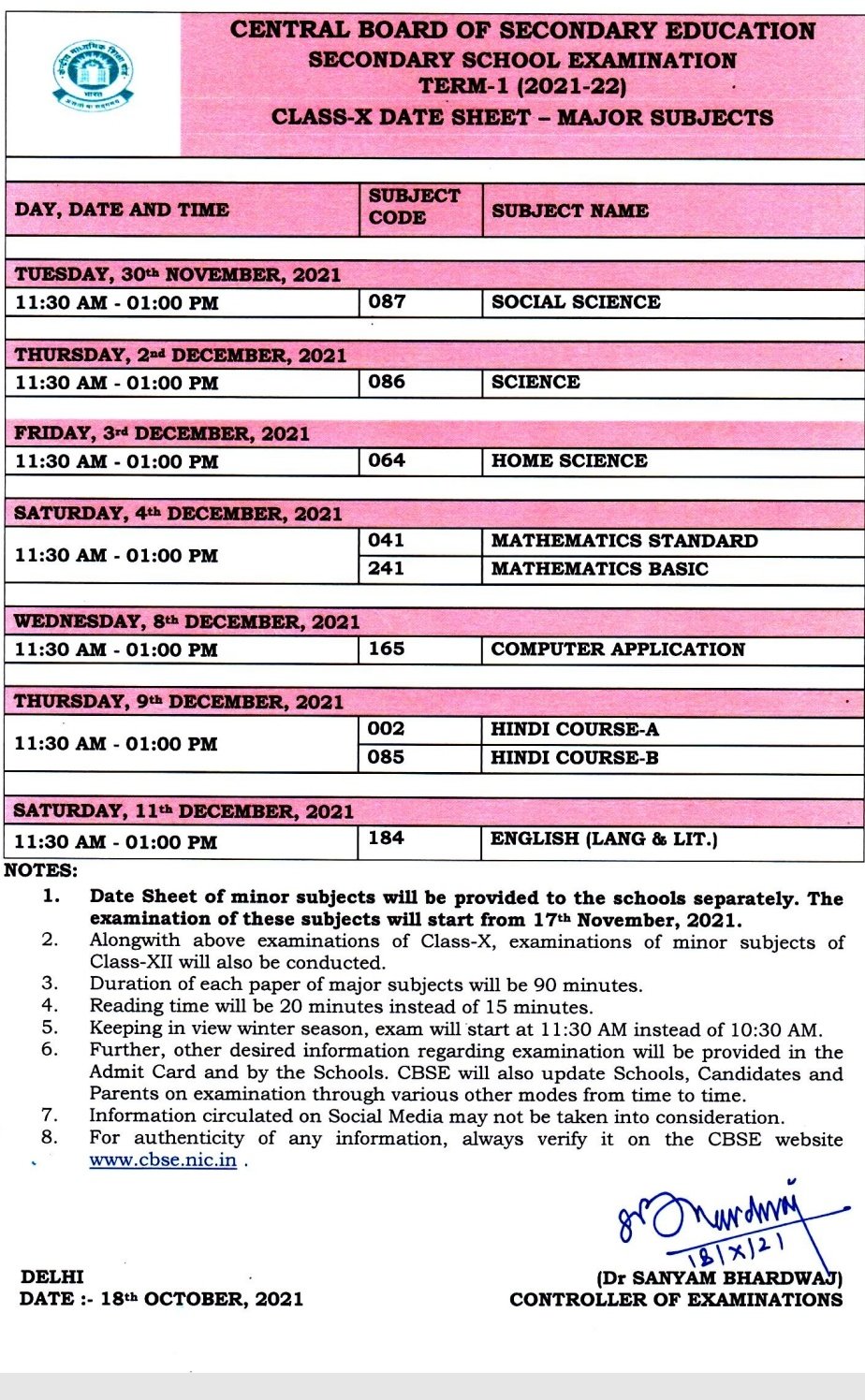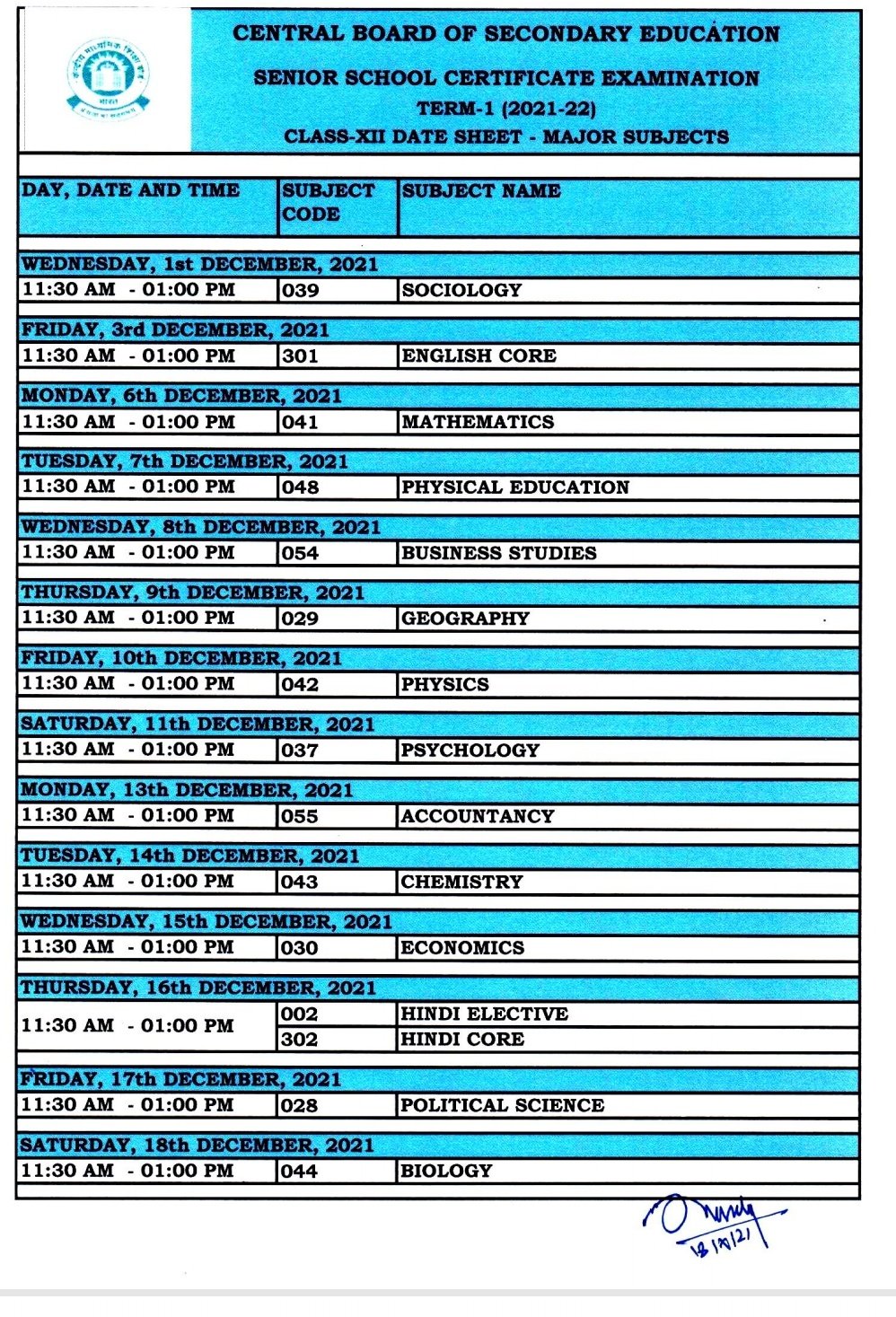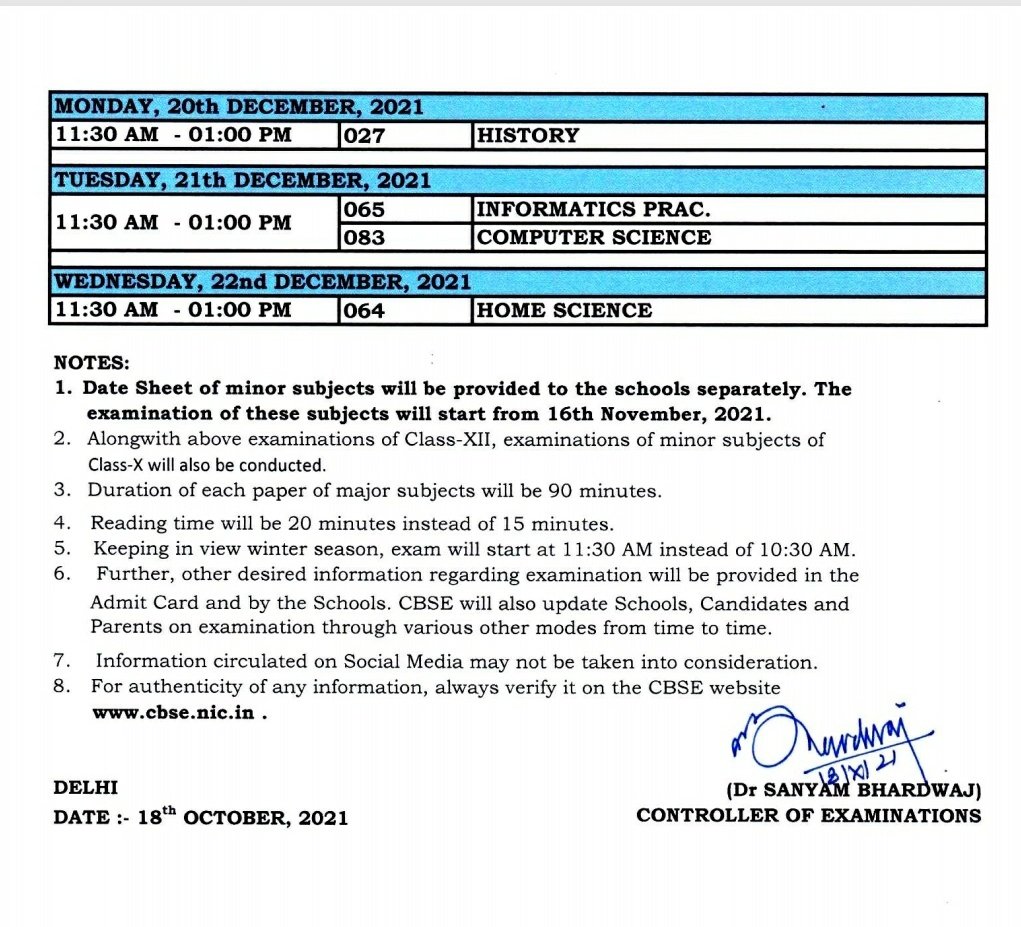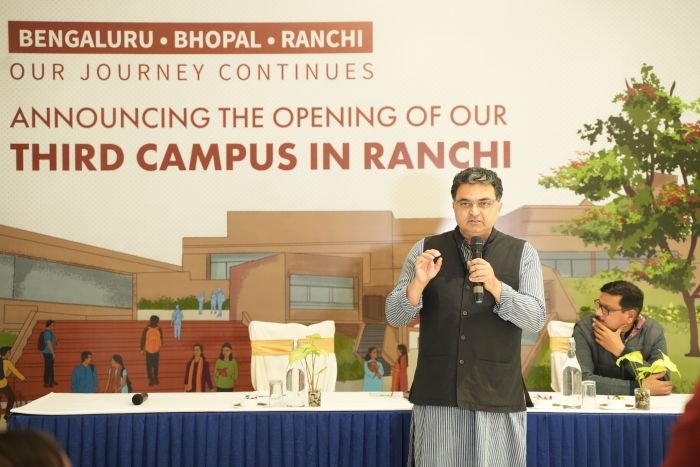
After having faced a lot of criticism and Supreme Court scrutiny (Writ Petition(s)(Civil) No(s). 522/2021) over lack of an alternative examination policy during the pandemic academic year 2020-21 where the board examinations had to cancelled in the wake of deadly second wave of covid 19, the Central Board of Secondary Education (CBSE), has ushered in a major examination reform from this year and for the first time since its inception in 1929. It has switched over to two-term examination for class 10 and 12 instead of earlier ‘high stakes’ single annual examination.
The scheme is also in line with the National Education Policy 2020, which states: “Board exams will also be made ‘easier’, in the sense that they will test primarily core capacities/competencies rather than months of coaching and memorization; any student who has been going to and making a basic effort in a school class will be able to pass and do well in the corresponding subject Board Exam without much additional effort. To further eliminate the ‘high stakes’ aspect of Board Exams, all students will be allowed to take Board Exams on up to two occasions during any given school year, one main examination and one for improvement, if desired.”
The new examination scheme is a changed pattern to semester-wise exams and is being implemented from this year. Already date-sheet for Term I have been announced. Term 1 examination for 50% course will be held from November 30, 2021 to December 11, 2021. These exams will be in MCQ format and students will have to fill OMR sheet. The Term II is expected to be conducted in March-April 2022 and will be the traditional (pen-paper) subjective/objective type question paper of two hours ‘as per the condition of covid in the country.”
The upcoming Term I exam is offline only MCQ format of 90 minutes duration. The Term-1 exam will have a maximum of 60 questions and is to be filled with a pen. The students will get a pre-filled OMR sheet with their personal details thereby eliminating the need of them again to save time and ensure no answer sheet is tempered with. Apart from marking the oval shaped answer options, the students also have to write the correct answer option thereby providing an extra safeguard for giving correct answer by the student in case his marking is missed by scanner. For visually challenged or hearing impaired and special needs children, the helping aids, extra time and other facilities will continue as was the case earlier.
To ensure fairness in the examination and discourage cheating or copying practices, the questions will be set in three series sets. That means, a student writing the exam will not have the same questions as his mate sitting in front or behind him or her. CBSE has said it will evaluate the OMR sheet on the very date of the examination at the centre before uploading/ handing over the same to the regional centre.
Also, for administrative convenience and to reduce the period of examination, CBSE has categorized subjects as major and minor. Major are core compulsory subjects. Minor subjects are electives include regional and foreign languages, application and skill-based courses, etc. The minor subject schools can be grouped and this will enable more than one paper of these subjects on a single day.
The MCQ format introduced for the first time as per experts will eliminate the practice of rote learning as the students need to have in-depth understanding of the subjects and clarity of concepts. At the same time critics say that this format is focused on low order thinking skills like remembering, understanding and applications than creativity and analytical thinking. A fine balance may well emerge after the second term examination is held where students will be assessed on subjective questions as well. “This new pattern is welcome and the way forward from content-based to competency-based assessment. Students will be exposed to competitive exam format quite early especially those from humanity and arts as unlike a lot of Science and Maths students do get this exposure from Olympiads etc. Then, it definite will reduce the exam stress and anxiety. The two terms also means less syllabus and credit besides the scope of improving in second term. I am sure once it becomes a norm, people will get used to it,” says Dr Sudha Acharya, Principal of ITL School Delhi and Chairperson of National Progressive Schools’ Conference, an association of 195 leading private CBSE-affiliated schools.
It was in July this year that CBSE had announced two term examination pattern. With its 24240 affiliated schools all over India and in 26 countries, the decision of CBSE will have a profound impact on ‘examination-centric’ school education in the country. Last year (2020-21) over 33.5 lakh students of class 10 & 12 registered for its examinations and the popularity of CBSE has been a definitive trend over the past decade. “CBSE has been a thinking board and the changes it has brought in from HOTS to assessment standardization and range of subjects including entrepreneurship, has made it popular nationally and even abroad,” says Arunabh Singh, director Nehru World School, Ghaziabad.
The schools and teachers have been informally training for this paradigm shift for some time now and designing of MCQs to make them interesting and creative is a part of these discussions. With a diversity of schools and students, the new pattern will have its own challenges. And, of course, the teaching/learning will also see a marked change. Most state boards which follow CBSE as a model may also add to this attention. Let’s wait for a transformation coming soon in assessments and evaluation!









